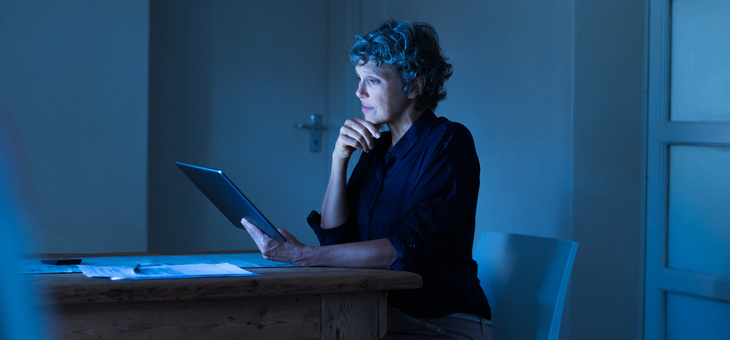Sorry, night owls, science says your late-night habits are unhealthy. A recent study concludes those who stay up late have “an increased chance of dying early, plus heightened vulnerability to a range of other illnesses like heart disease”.
Of 433,000 people studied over six years, people who identified as night dwellers were 10 per cent more likely to die early than early risers.
They were also 90 per cent more likely to suffer from a psychological disorder, 30 per cent more likely to be diabetic, and were more prone to gastrointestinal and neurological disorders.
This could be because it’s difficult for people with different body clocks to fit into an early rising world.
Vox’s Brian Resnick says our sleep preferences are called chronotypes and when our biological clock is out of sync with society, “our whole biology gets thrown off, and many aspects of our lives grow more stressful”.
“Having a very late chronotype is like living in a constant state of jet lag, which takes a toll on the body,” he writes. He calls for understanding of different body clocks, because changing one’s chronotype – largely set by genetics – can be extremely difficult.
“If you’re just not a morning person, it’s likely you’ll never be, at least until the effects of ageing kick in. As we get older, our clocks nudge us to wake up earlier and earlier.
“People with a later chronotype don’t necessarily sleep more hours than those with an earlier one. They just prefer to do it at different times.”
A 2013 Chronobiology study already revealed that evening types were 30 per cent more likely than morning types to have high blood pressure. This could be because night owls are less active; they spend more time sitting and find it tougher to keep a regular exercise regime.
“The people in the study weren’t lazy; they were highly active adults averaging 83 minutes of vigorous activity a week,” health.com reports.
“Still, waking up late or being an evening person made exercise seem much more difficult.”
Staying up late is also associated with poorer eating habits.
“Cutting back on sleep increases the likelihood of indulging in fatty, high-calorie fare at night, which leads to weight gain,” womenshealthmag.com reported, referencing a University of Pennsylvania study that compared those who went to sleep at 4am to those who nodded off at 10pm.
Even if you ‘binge’ late nights only at the weekend, you increase your risk of heart disease, bustle.com reports.
“Researchers called this sleep pattern ‘social jet lag‘ and linked its effects to heart disease. In fact, researchers found that for every hour your sleep schedule shifts, you increase your risk of heart disease by 11 per cent.”
Brian Resnick says after a weekend of sleeping late, if you must wake up hours earlier, it’s like “jumping to a new time zone”.
“If you experience that daily, it can put a stress on the body that undermines health.
“In a tightly controlled lab study, 24 healthy participants who had their sleep shifted by one hour each day (simulating jet lag) started to look prediabetic after a three-week trial. Their resting metabolic rates dropped 8 per cent.”
This would add more than 5kg of weight to the body in a year.
If late sleepers wake up early, they’ll be out of sync with society, but also will have under-slept.
Britain’s National Health Service reminds us that good sleep is essential for boosting immunity, weight loss, mental wellbeing, diabetes prevention, sex drive, warding off heart disease and increasing fertility.
Dr Melissa Weinberg from Deakin University’s School of Psychology adds that good sleep is necessary for the brain to consolidate information and there is a direct link between sleep and memory.
Driving while sleep-deprived also impairs you as much as consuming alcohol.
‘Average sleep’ is considered between the hours of 11 pm and 7 am, give or take an hour. Around 50 per cent of people fall asleep with this pattern.
People in all chronotypes need seven or more hours of sleep per night.
Do you get enough sleep? Have you ever changed your sleeping pattern?
Read more: Nine ways to beat a headache without drugs
If you enjoy our content, don’t keep it to yourself. Share our free eNews with your friends and encourage them to sign up.

